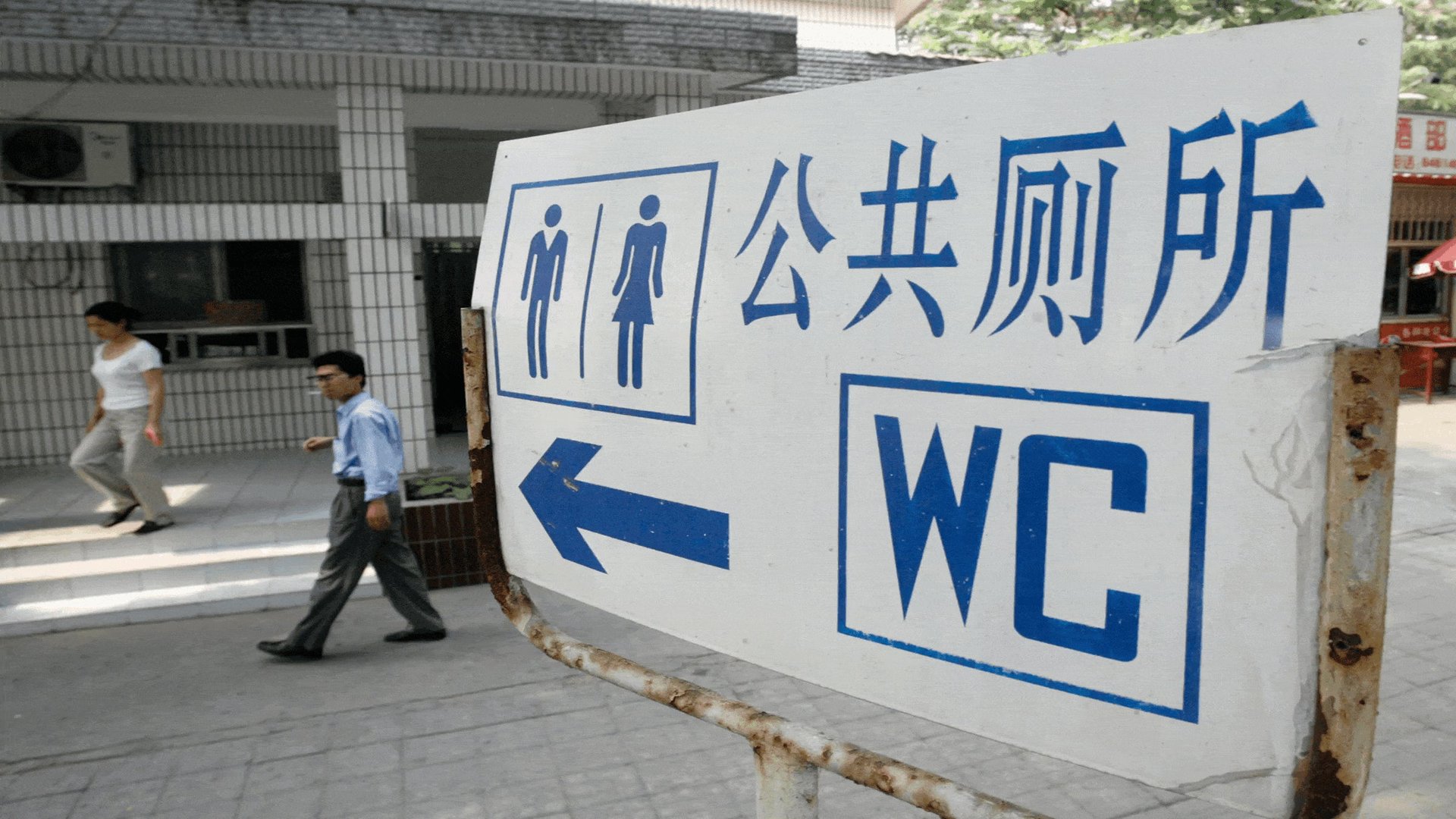Beijing’s city government is fighting public urination, one app at a time
Next month, the 16th Great Wall Marathon will take place, as thousands of runners scramble over a treasured monument to China’s long history. It will be a little over half a year since the Beijing Marathon drew a rather more unwelcome kind of attention, when crowds of runners stopped mid-course to relieve themselves on the walls of another national treasure, the Forbidden City.


Next month, the 16th Great Wall Marathon will take place, as thousands of runners scramble over a treasured monument to China’s long history. It will be a little over half a year since the Beijing Marathon drew a rather more unwelcome kind of attention, when crowds of runners stopped mid-course to relieve themselves on the walls of another national treasure, the Forbidden City.
The images of urine-soaked walls sparked considerable outrage, and raised questions of why the race organizers didn’t make more public toilets available. The Beijing city government hoping things stay quite a bit drier this year—it is creating an iPhone app (in Chinese) that locates public toilets for users, wherever in the capital they may find themselves.
“With this many people coming together, meeting all their toilet demands in a short period of time is difficult,” Chen Yong, director of Beijing’s Urban Image Committee said in a radio interview this week. “This is a problem all countries face.”
Marathons aside, discussing the state of its public toilets is a year-round tradition in Beijing. Two years ago, authorities made a public effort to clean up the city’s lavatories, stating among their rules that there should be “no more than two flies” at any one toilet. Six months later, during a visit to the city, a BBC reporter found the issue of toilets to be on the “no-reporting” list of banned topics in China.
Even if there are simply not enough public toilets for Beijing’s population—estimated to be as high as 19 million—the app will almost certainly help the thousands of tourists that find themselves in a tight spot when they visit the city. Similar apps have already surfaced in Shanghai and in Hong Kong.
What the app does not do is address the quality issue in Beijing toilets—for a historic look at this, one can turn to a weighty report in the Journal of Architectural Education (published in 2000), which explains that public toilets ”exemplify communist ideals of simplicity, functionalism, and working-class sensibilities.” But until public toilets are both emblematic, clean, and easy to find, city officials shouldn’t be too surprised if some in Beijing continue to just use a wall in times of need.